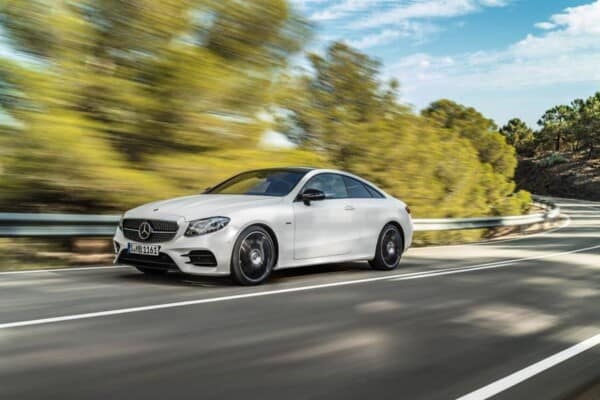Times have changed and buying a car is not as difficult and complex as it was before. Considering the amount of information you have access to nowadays, the overall experience of making such a purchase is actually quite less stressful. However, this can only work out for you if you do your research properly. You need to know what to look for even though you have no clue regarding how to know your options on a preowned car. If you wish to learn more about how to buy a used car that’s reliable, read on.
How To Buy A Used Car
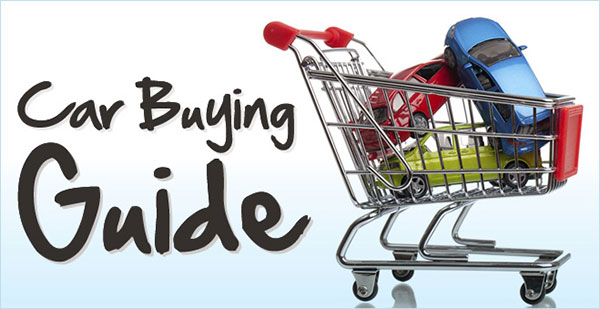
I am writing this post according to my own used car buying experience, and it’s also based on the research I did a few months back. I aim to create a post that would be the ultimate used car buying guide that you will ever need!
Here’s an index to help you navigate to a particular section.
- Determine How Much You Are Willing To Spend
- Find The Right Car For You
- Decide If You Want A Used Or Certified Preowned Car
- Where To Look For A Car
- Where Will You Buy Your Car? Dealership or Private Seller
- What We Learned From This Post
Determine How Much You Are Willing To Spend

Before you even consider looking at any car, it would be wise to start by determining your budget. This actually makes it easier for you to plan your purchase accordingly.
It is one of the most important factors you need to keep in mind while looking for a used car. You have to see how much you can actually afford. It would be hard to specify an exact amount, but maybe you can set a range to keep in mind. So if are ready to buy the car on cash, you are in good shape, but if you are financing then I have laid out some information below.
If You Are Financing A Car

If you need a loan, calculate the monthly payments as that will help you determine how much you can afford. After setting a budget, you need to consider your financing options. Depending on your credit rating, your options can vary. We would personally advise you to get a preapproved letter from your bank or credit union, rather than financing through a dealer. I would personally recommend first applying for an auto loan at a credit union first, as they offer better interest rates compared to banks. Read below, how dealers trap you into the monthly payment game.
If you are buying through an experienced dealer, the first question they will ask you is what monthly payment is within your range. If you tell them I want to stay within $200 of monthly payment, they can offer you a 7 year (84 months) loan on a 3% interest, and make you purchase a $15,000 car. Whereas, you just might be happy with purchasing a $10,000 car, with a 3% interest loan that’s only 4.5 years (54 months).
Getting a preapproved letter will save you the hassle, as you can get offers and calculate your monthly payment beforehand. Thus, when you go to a dealership, you know exactly how much you want to spend. It will also help you negotiate the deal with an upper hand.
Consider Tax, Title and License
Additionally, it is also important for you to consider all other costs, including tax, title, license and other fees for the car. Generally speaking, these costs can add up to 10% of the original purchase price. Knowing what you are getting into will save you from a lot of problems in the long run.
Find The Right Car For You
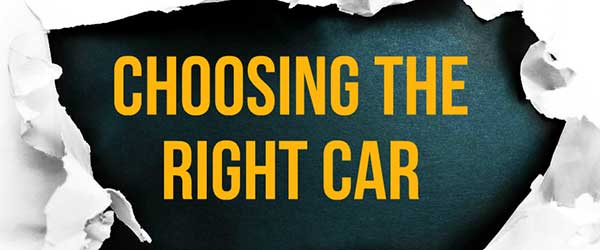
Before you go on looking for used cars, make sure you decide what kind of car you need. You can choose from a sedan, coupe, hatchback, SUV, truck and other different kind of vehicles. Make this decision based on your needs. If you have a family, then a sedan or SUV might be best for you. If you usually drive the car alone, you might want to have some fun with a coupe or convertible. If you need to pick up heavy loads, then a pickup truck might be best for you. So make up your mind before you decide on which car you want to buy.
Buy A Car You Like
If you are like me, then you would want to drive a car that you really like. It’s better to invest in a car one time, then to keep thinking about changing your car because you don’t like it. The previous car I owned was the Honda Civic, which served me good but it wasn’t something I really liked. During the one year I owned it, I always kept thinking of upgrading to something better. Just in one year, the car’s value depreciates a lot, so it’s wise to set your mind. I ultimately sold my Honda Civic and ended up getting a certified preowned Mustang, which I love. I know that I will keep this car for the next 5 years, and by the time it would also be paid off. I personally think it was a great decision, but I just wish I would have thought about this before getting the Civic.
Cars are important, after all you spend a lot of time in it. So invest wisely in a vehicle of your choice that will keep you happy for a long time.
Other Costs Of Vehicle Ownership
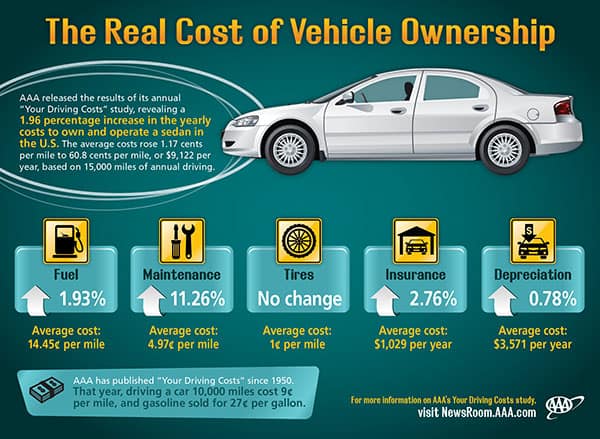
You also need to look at insurance rates and fuel costs to think about what kind of car you want. Other than that, consider maintenance costs as well since these can vary greatly from car to car. Your monthly payment might be low, but if these costs are higher then you will end up regretting your decision. Above is an infographic from AAA, on rising costs each year, that also tells you other costs that are associated with vehicle ownership.
If you are concerned about your resale price, keep in mind the depreciation of cars as well. This will help ensure you get the maximum money when you sell the car.
Get Insurance Quotes
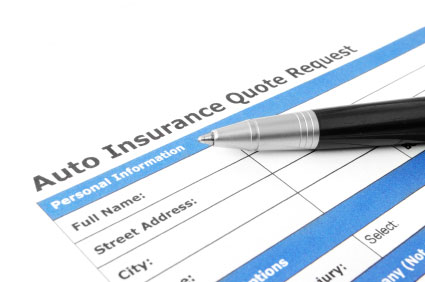
Get insurance quotes from several companies. Choose a car that you like, and give them the VIN # of that car, to see how much you have to pay every month. For me to upgrade from a Civic to a Mustang was $20 more a month, which is pretty reasonable considering the difference in both cars.
Click here if you want to learn how much car insurance do you really need.
Look At Fuel Economy
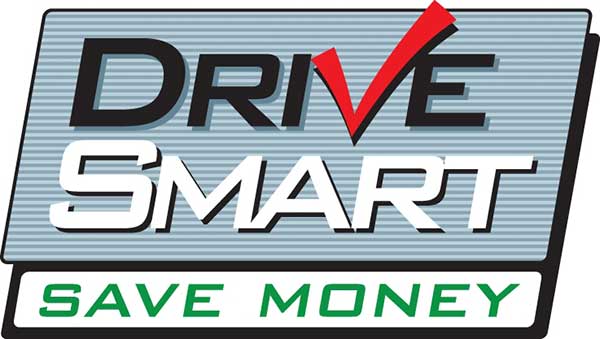
I was a bit skeptical about getting a Mustang because of the rumors I had heard. Everyone told me that it’ll consume gas like crazy, but I did my own research. I found that a 2012 V6 Mustang gives you 23 combined MPG whereas the Civic on the other hand gives 29 MPG combined. After purchasing the car, I felt the Mustang is a gem. It speeds up like crazy when you want and it does consumes a lot of gas at that time. But if you drive it gently in daily driving, then it gives you pretty good fuel economy. And with the all-time low fuel costs, I hardly notice any difference. If you want, you can adopt these habits to learn how to save on gas like me!
If you want to compare fuel economy on two cars side by side, here is a tool.
Research The Car Model
To research the model you like, you can check for car reviews. Just search on Google for that model, see the specifications of that vehicle and ratings by other customers. You can also go on forums related to that car model to see if there are potential problems those car owners have faced. I went on several Mustang forums to see what experiences other car owners had shared. One more helpful tip was watching in depth videos on YouTube about that car model to see a walk through.
After researching facts and looking at other people’s experiences on the internet, go test drive the car to see if it’s a good fit for your needs. See if you think it’s comfortable enough, and if it has the space you need. Check the performance and see if you like driving it. This will ultimately help you make up your mind and shortlist your search to one car.
Decide If You Want A Used Or Certified Preowned Car
If you are deciding to purchase a car from a dealer then this is important for you. A used car and a certified car are two very different set of vehicles. A used car is just simply a preowned car, which is sold “As Is”. A certified car on the other hand is a vehicle sold by the certified dealer.
Difference Between A Used and Certified Vehicle
A used car has no warranty to back it up. The seller is selling you the car “As Is”, so if you drive off the lot and a car starts having problems, it is your responsibility now. However, if you find that a car is a lemon, there are laws that are there to protect you. Click here to learn what the used car lemon law is.
A certified car is inspected by the dealership and if there are any problems with it, they will fix it before selling it. On top of that, you also get a manufacturer warranty. There is usually a 7 year powertrain warranty and 1 year limited warranty. If there are any major problems with your car, your dealership will get it repaired for you. The warranty is actually backed by your car manufacturer, not the dealership. When you bring in a car that needs repair, the dealership will communicate with the manufacturer and take care of the issue. However, there is sometimes a deductible for a repair on your car. Ford charges $100 deductible per visit, Toyota charges $50, while Honda and Chevrolet charge none. So you might want to check different car brands certified vehicle policy, as it may vary. Ford has a comparison tool, where you can compare the certified car policy on these four car brands.
Our Advice: Go For The Certified Car
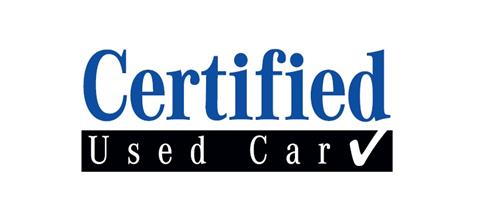
A certified car is the best of both worlds. It’s a used car, but it’s almost new. The manufacturers have certain restrictions on what kind of vehicle can be certified. So the vehicle you will be getting is potentially trouble free, and is covered by your manufacturer. Even if there are any issues, they will be taken care of.
Click here if you want to learn more about a certified used car.
Where To Look For A Car
You can look at online classified sites like AutoTrader, Cars.com and Craigslist. Most of the sellers on AutoTrader are dealerships, as you have to pay a fee to get a listing. Craigslist on the other hand is mostly used by private sellers and small dealerships or agents. You can look at pictures, see the features and look at the vehicle history report. Then call them or email them, and get the additional information you need.
Most of the people look online for cars nowadays. But if you want, you can also look at newspaper classifieds. You won’t be able to look at pictures and there will be limited information. But you can call the seller, and ask them to send you the information & pictures of that vehicle.
Where Will You Buy Your Car? Dealership or Private Seller
Before we go on to discuss the differences in dealing with a dealership and private seller, I want to clarify one thing. I am not talking about dealing with a small mom and pop dealership, or any agent who is selling a car. I would rather recommend that you purchase the car from a private seller than those small dealerships, I have only heard of people getting problematic cars. Of course, if you purchase from a certified dealership, a car could have problems but the probability is much less, and at the end of the day they will be answerable. So we are only talking about a private seller or a certified dealership that’s authorized by the manufacturer.
| Dealership· Peace of mind.· You know who you are dealing with.· You can read reviews online and know what experience you will get.· Lots of vehicles to choose from.· Less paperwork. · Lower probability of getting a lemon. · You have options to buy a certified car. · Chances of getting a pushy salesman. | Private Seller· You might get a lower price.· Don’t know what to expect.· You won’t know how the deal will go and if the person is reliable or not.· You can only look at one car.· More paperwork. · You might get a problematic car. · The car will be “as-is”, take it or leave it. · Private sellers won’t bother you. |
I recommend an authorized dealership, because I have personally dealt with private sellers, small dealers and certified dealership. In my opinion, an authorized dealership is the way to go, for the smoothest transaction and great support. Even after I purchased my car, I can always call the Ford dealership, and ask them any questions I have.
Click here to learn more about whether you should buy a car from a dealership or private seller
Dealing With A Private Party
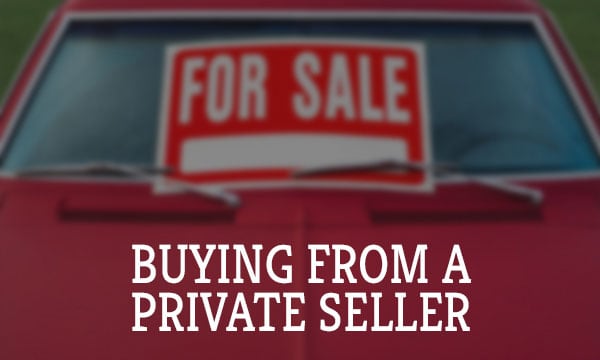
Initiate contact by calling the seller. Confirm if the car is still up for sale, request them for the VIN number so you can check vehicle history reports, ask if there is any accidental history, and ask them why they want to sell the car. Ask these questions and other information you need to know that is not listed in the ad. Then set up a meeting in a public place. Try avoiding going to some stranger’s house or calling them to yours, it’s just a safety measure you can take.

Do your homework before the meeting. Check vehicle history reports from at least two reputable companies. We recommend purchasing Carfax and Autocheck when you are looking for a car, and run up each car you are considering. This will help you prequalify cars to help you avoid accidental cars or any other major issues. Please do check both of those reports, do not avoid either, it cost me badly.
What Happened When I Skipped On AutoCheck And Purchased From A Small Dealership
Before I purchased my Mustang, I purchased a Honda Civic coupe from a small dealership. At the time, I only purchased the Carfax report which showed the vehicle was good. I then got it inspected from a local mechanic who said yes the car looks fine. I went ahead and purchased it, and it served me good for a year.
After a year, I got bored and decided to purchase some other sportier coupe. I ended up setting my mind on the Mustang once I took a test drive in one. So I got this great deal on the Mustang that I wanted, and all I needed to do was to get rid of my old car. I asked the same dealership how much they would offer me for a trade in. They asked for my car keys, and they inspected it.
First thing they found was the motor mounts were bad causing my car to shake badly and creating a lot of noise. Now all this time I thought that the noise came because the exhaust was “sporty” as I was told by the previous dealer. The second thing they told me that the underbody was damaged, it’s also called as frame damage or structural damage, which declares a vehicle unsafe to operate. I was shocked, as they showed me the Autocheck report which stated that the car had frame damage reported, announced in an auction clearly from where the dealer bought the car. I asked them for a copy of Autocheck and saw it for myself. I realized how stupid I was to not look at the Autocheck report just to save $30. The car was overall good, but these issues greatly reduced the car’s value when I wanted to sell it.
So I asked how much would I get if I decide to trade it in? They told me they usually do not purchase cars with a bad history, but they would do me a favor and take it from me to give it into an auction. You know how much they offered me? They offered me just $2,500 for the same car I bought only a year ago for $10,200. A 75% loss. This totally blew me off, and I immediately went on the previous dealership’s website to give them a call. What I found was, the dealership’s website was not operating anymore, and the number I got from their Google places listing wasn’t working either. Wow, what a scam, huh?
Lessons learnt
- Always check all vehicle history reports. Don’t leave out any, believe me it’s worth it. Check both CarFax and AutoCheck.
- Get the car inspected from a certified mechanic who takes out time and actually looks at the vehicle in detail.
- Avoid small mom and pop dealerships. In fact, after this incident I am so wary, I try to avoid private sellers too. You might save $1000 or more right now, but you don’t know if it’s going to be an expensive mistake in the future.
When You Go To Meet
When you go to meet, you not only have to inspect the car, but you also have to inspect the seller. Not in a creepy way, but just see if the person could be hiding anything from you. See the way he talks, and if he’s trying to rush the deal. Would he be lying and selling you a troublesome car? Look for any red flags, and if you do then don’t be hesitant to walk away. After that’s done, it’s time to look at the car.
A Physical Assessment Is Mandatory
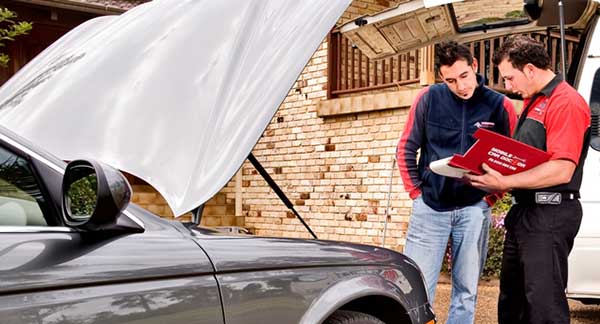
As tempted as you may be to buy the car ASAP, don’t. Not without a physical and mechanical assessment. Buying a car may be simple nowadays but this doesn’t mean you should buy someone else’s problems. You should take your time and be thorough during the physical assessment of the preowned vehicle. Instead of relying on the seller’s mechanic, ask your mechanic to accompany you instead. There’s no harm in examining the vehicles. This way, you can ensure you are not going to end up paying more in the form of repairs than you already have invested in the used vehicle.
We would recommend going to a certified mechanic. A good mechanic who takes time to inspect the vehicle thoroughly would charge about $100-200. They are experts, and can tell you if a car is accidental, or if it’s going to give you problems in the near future. The mechanic may also pin point every issue in the car, which may help in reducing the price of the car to a great extent so you would also cover up for the inspection fees. Also ask the seller for service records, to check if the car is well maintained. A car that is not well maintained may give you trouble down the road. So make sure the car is accident free and is well maintained, to ensure longevity of the vehicle’s life.
If you are trying the save the mechanic’s fees then here’s a good article I found to inspect the vehicle thoroughly yourself. If you would rather watch a video, here’s a good one under 5 minutes.
Test Drive The Car
Even though the car may sound fine and it may look good too, test driving can give you a better understanding of the vehicle. Apart from being able to gauge the vehicle’s characteristics, it will save you from repenting later on. Even though many people take a minute or two to test drive the vehicle, you must not make this mistake. Spend as much time as you can inside the car, check each and every function and then go for a test drive.
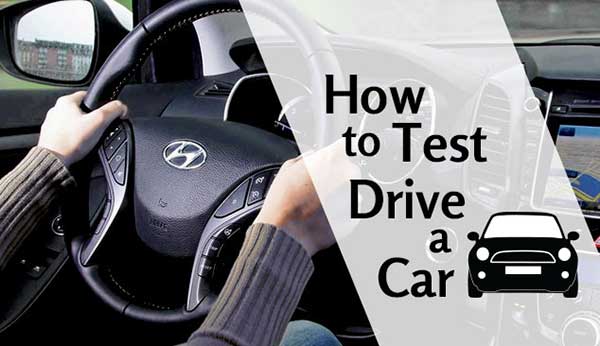
Drive on both, the roads and the highway. But before you do, turn the radio off and stay away from any other distractions. Here’s what to look for when test driving a car.
- Check for any engine or TPMS signs that might be showing up. These could give you problems.
- Go on the highway at 60 mph or above. Problematic cars start shaking when going at higher speeds.
- Does the steering wheel vibrate? Does the car creating a buzzing noise? It happened with me, and it was a broken motor mount which cost me $400 to replace.
- Check the alignment. Leave the steering wheel when at a slow speed, if it pulls to the other side, the alignment is probably bad.
- See if the transmission shifts smoothly or not.
- Apply the brakes in all conditions, both slow and fast to test how they work.
- Look out for any other vibrations or noises.
If you took a detailed look at the car, got it inspected by a certified mechanic and took it for a test drive, and all seems good then go for it.
Closing The Deal With A Private Seller
Buying a preowned car from a private seller has its pros and cons. These sellers may not have all the previous repair records and they most certainly do not offer a limited warranty. However, buying from private sellers means you are more likely to get a lower price and walk away with a great deal. Give them a much lower offer than what you actually want to spend. Do not feel ashamed doing this. You probably won’t be seeing the other person again, so might as well get the best deal.
Once the price is negotiated, you can purchase the car. You need to get the required forms to transfer the title. These forms can be obtained from the local Department of Motor Vehicles. Every aspect of the purchase needs to be recorded in writing, and usually prepared in a ‘bill of sale’ document. Not only does this protect you and the seller, it also outlines the terms and conditions that were agreed upon by both parties. The entire process needs to be transparent and has to be understood by both sides.
Dealing With An Authorized Dealership
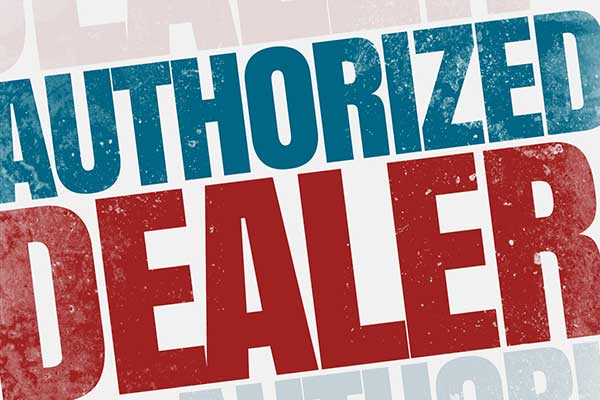
At a dealership, you will be dealing with a professional salesperson, who may be pushy. Tell them what kind of car you are looking for, or if there is a specific one that you have in mind. Request them to let you test drive the car. It is possible that they might come in and sit in the car while you test drive it, so don’t be alarmed if that happens.
After you are back from the test drive, the negotiation begins.
Negotiating A Used Car Price From A Dealership

When you are back from the test drive, do not show a lot of excitement. They will ask you questions on how you feel about the car, so just keep it neutral. Even if you love the car, keep calm, and follow these tips.
- Go out to a dealership towards the end of the month, or if that is not possible than go at the end of the month. They are more inclined to make a sale, and may let the car go for a lower price.
- If you can, offer to pay them with cash. People say it makes a difference, compared to getting it financed. This may help you get a better deal.
- Point out issues with the car. Make sure they get it fixed, and it might even help further to reduce pricing.
- Give them an offer that is lower than what you actually want to spend. If it’s a $10,000 car for example, then tell them at the most you will spend $7,000. They will then hustle with you, and a middle price will be set.
- One advice I can give you is that if your car is being sold at a difference of $500 compared to the trade in offer, then just trade it in. This way you would save some money on your TTL. You will be getting almost the same amount of money, and will save yourself the hassle of selling the car. This is true in Texas, not sure about elsewhere so you might want to verify that for your state.
Dealing With The Finance Department
The finance department will try to get you to finance through them. But as I recommended, try to get a preapproved letter from your bank or credit union. This way you can easily reject their offer, and say I have mine. They may try to say we will get you a lower rate, but let me tell you that if you have a 2% or 3% interest rate, that is probably the lowest you will get, so in that case do not go for it.
Other than that, the finance person will try to sell your maintenance plans. Well, what can I say, even I got sold on those. I ended up purchasing the prepaid maintenance plan and the tire hazard warranty. Yes, even the experts get reeled in, so stay alert! After a few days I realized that it was not worth it so I got those canceled.
Closing The Deal With A Dealership
After the negotiation, I was told the total amount that would be financed from my credit union. Once I agreed with everything, the deal went through and then I had to sign some paperwork. Make sure you take a quick look on what you are signing.
After the car was mine, I signed up for the insurance. My salesperson told me that the insurance company usually covers a car that you purchase for a certain number of days. (This may vary depending on your insurance company’s policy, so call and check). However, to be safe I still went ahead and immediately added the new car to the plan. Once that was taken care of, I happily drove away in my new car.
What We Learned From This Post

- Calculate your budget and set the terms.
- Research and shortlist models.
- Try to stay away from private sellers, or small dealerships until you personally know them.
- Get all vehicle history reports.
- Take the car to a certified mechanic to inspect it, no matter where you buy it from.
- Test drive the vehicle thoroughly.
- Negotiate a fair price.
- Take a look at the documents to be signed and close the deal.
Keeping the aforementioned factors in mind, you now have more than enough information to buy a used car. Figuring out how to know your options and working with a budget may seem restrictive but it shouldn’t discourage you from making the right choice. As long as you do your homework, it is highly unlikely you will regret buying a used car later on. It is an experience of a lifetime and eventually gives you the much needed insight required to make reliable purchases.
We hope our used car buying guide will help you make the right choice. Buying a used car is a difficult process, but keep these tips in mind, and you should be good. Good luck!
Have any experiences you would like to share? Let us know in the comments section below. Don’t forget to subscribe to get more informational tips and the latest information on the auto industry.
Contents
- How To Buy A Used Car




